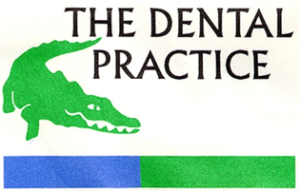We will be closing from midday on Tuesday 24 December 2024 and will reopen as normal Thursday 2 January 2025. Wishing you all the very best for the festive season and a happy and prosperous 2025!
All trading businesses, large and small, are a “brand” and that brand carries with it Intellectual Property (“IP”) rights. This article explains briefly what IP rights you might have, how to protect them and how not to infringe the IP rights of others.
Rights in your trading name and logo
A business’s trade name or logo can be registered as a trade mark so long as it is distinctive and does not fall within a limited number of excluded categories. Registration of a trade mark entitles the owner to exclusively use that trade mark in relation to identical or similar goods and services. However, not all companies go to the time and expense of registration. In these circumstances, even if the name or logo is not registered, it may be possible to prevent others from using the same or a similar name if in doing so they are “passing off” their goods or services as being connected to your business.
Intellectual Property not only exists in brand names, but there can also be rights in the designs and logos used by your business. If original, these will automatically attract copyright protection. They may also be registered as trade marks.
Franchises – Care Home and Pharmacy chains
At Debenhams Ottaway we often see branding disputes arising in franchise situations, where IP rights including registered, or unregistered trade marks and other aspects of trade dress are licensed to franchees. The difficulty often arises when the franchise agreement is terminated, but the ex-franchisee continues to use the licensed branding.
This is an issue that the health sector is not immune to (there was, for example, a well-publicised dispute in 2014 between Carewatch Care Services Limited and their ex-franchisee Focus Caring Services Ltd). The risk of such a dispute arising can be reduced by putting in place clear documentation as to what rights are licensed, updating this when appropriate (for example on a “re-brand” of the chain) and asking for personal guarantees from the directors of the franchisee.
In the event of a dispute arising, injunctions can be sought to prevent further use, together with a claim for damages in compensation for the damage caused, or in place of a suitable license fee.
Third party rights – Crocodiles and Poppies
It is also important to avoid infringing the rights of third parties. In the above case, Focus Caring Services were briefly in dispute with the Royal British Legion about the use by Focus of the trading name “Poppy Care”. The outcome of the dispute was Focus re-branding their business “Purely Care”.
However, where brands try to overextend their monopoly of a registered sign, common sense does usually prevail, as the International clothing chain Lacoste discovered after suing a Gloucestershire dental practice for use of a smiling crocodile on their practice’s welcome sign. Following a three year battle, the UK Intellectual Property Office concluded that the emblems (depicted below) were not sufficiently similar for there to be confusion.
 v
v 
However, the time and cost of such disputes is best avoided by performing a “clearance check” before launching a new brand, to reduce the chances of any challenge.
The contents of this article are intended for general information purposes only and shall not be deemed to be, or constitute legal advice. We cannot accept responsibility for any loss as a result of acts or omissions taken in respect of this article.
